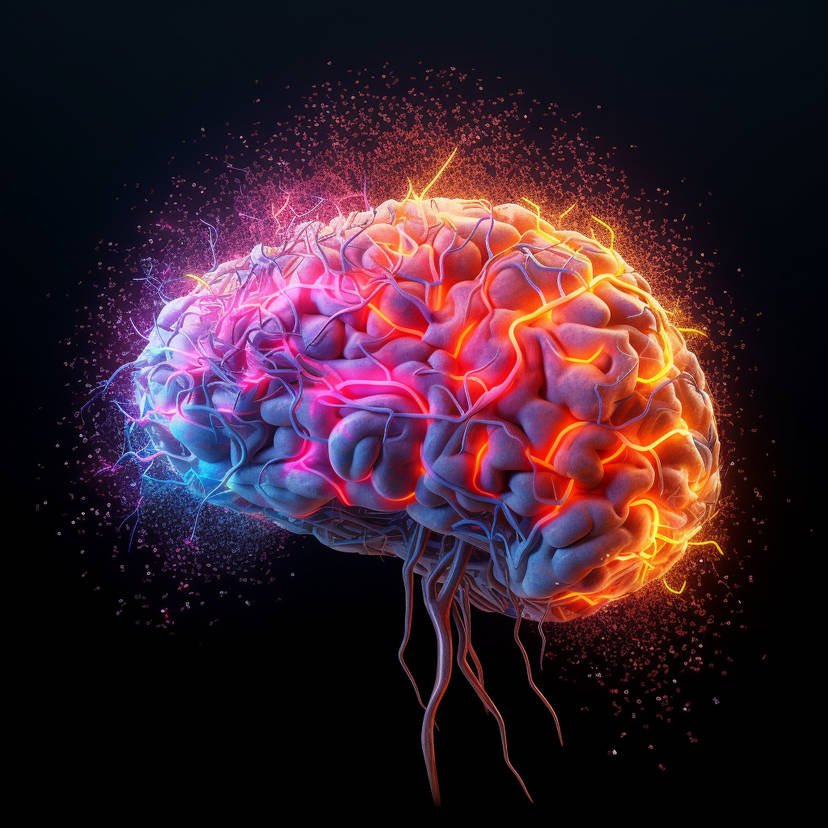While climate change has always been a prominent election issue, a series of devastating hurricanes in the southern United States this past month may place it at the forefront of some voters’ minds as they head to the polls this November. Climate action has become especially contentious in the wake of hurricanes Helene and Milton, which battered Florida and other nearby states between late September and early October. The Miller Worley Center for the Environment, Mount Holyoke College’s center for environmental leadership, has urged community members to address climate change by casting a ballot in the Nov. 5 general election.
Does consciousness die after death? New post-mortem brain study says it might not
Amping up the brain’s ‘sewer system’ may help treat Alzheimer’s
Researchers are developing a new non-invasive strategy for mitigating the symptoms and progression of neurodegenerative diseases, according to Nature Communications. As Cell & Bioscience reported, scientists are currently investigating how to reduce an agglomeration of Alzheimer’s-associated proteins, toxins and cellular debris by enhancing the brain’s ability to clear waste.
Customized vaccines may be the next step in treating cancer
Amidst the maelstrom of novel cancer treatments featured in the news, cancer vaccines have become a rapidly advancing method for preventing, treating and personalizing cancer medicine.
According to the Cancer Research Institute, various cancer vaccines either exist or are currently being tested in clinical trials. However, unlike vaccines for influenza and COVID-19, many of them are not meant to be preventative. Instead, cancer vaccines may help the immune system attack pre-existing cancerous cells based on their specific mutations, making them more of a treatment than a prophylaxis — a measure meant to prevent the spread of disease.
Brain food might have a whole new meaning, according to new research
It’s no secret that running is exhausting, but an early-stage research paper is exploring just how much it impacts the body. According to an article by RunnersConnect, prolonged endurance running, such as marathons, may deplete the body’s carbohydrate stores, leading it to burn fat for energy. A preprint research paper recently submitted to bioRxiv suggested that the body turns somewhere unexpected to find its fat cells: the brain. The preprint reports found that brain tissue — specifically myelin — may be used as fuel in marathon running.
AI seeks to make neurosurgery safer and more effective
In an increasingly automated world, Artificial Intelligence is becoming commonplace in almost every area of our lives.
According to the Pew Research Center, many Americans have misgivings about its effects on privacy, customer service and public safety. Forbes lists job loss, reduced human interaction, misinformation and an uncertain future for humanity as primary concerns of AI’s rise. However, AI also illustrates great promise for the future of industries like medicine.
Calling all stargazers: New astronomy club is approved
Aspiring student astronomers, physicists or simply appreciative stargazers need not gaze out into the infinities of space through a telescope to find the perfect extracurricular activity — an out-of-this-world option is available in ASTRO, the new campus astronomy club. The group is becoming an official student organization this semester, according to ASTRO Club President Abbey Hazen ’24.
NASA returns unprecedented asteroid sample to Earth
Another new piece of the final frontier is now within humanity’s grasp. On Wednesday, Oct. 11, NASA revealed images of its first-ever asteroid sample returned to Earth, The New York Times reported. The fragments were collected from the seven-year-long OSIRIS-REx mission launched in 2016. The goal of the mission was to collect materials from the 4.5 billion-year-old near-Earth asteroid Bennu, according to CNN.







